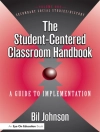Arts education is often said to be a means of developing critical and creative thinking. Arts education has also been argued to enhance performance in non-arts academic subjects such as mathematics, science, reading and writing, and to strengthen students’ academic motivation, self-confidence, and ability to communicate and co-operate effectively. Arts education thus seems to have a positive impact on the three subsets of skills that we define as "skills for innovation": subject-based skills, including in non-arts subjects; skills in thinking and creativity; and behavioural and social skills. This report examines the state of empirical knowledge about the impact of arts education on these kinds of outcomes. The kinds of arts education examined include arts classes in school (classes in music, visual arts, theatre, and dance), arts-integrated classes (where the arts are taught as a support for an academic subject), and arts study undertaken outside of school (e.g. private music lessons; out-of-school classes in theatre, visual arts, and dance). The report does not deal with education about the arts or cultural education, which may be included in all kinds of subjects.
Ellen Winner & Stephan Vincent-Lancrin
Educational Research and Innovation Art for Art’s Sake? The Impact of Arts Education [PDF ebook]
Educational Research and Innovation Art for Art’s Sake? The Impact of Arts Education [PDF ebook]
Köp den här e-boken och få 1 till GRATIS!
Språk Engelska ● Formatera PDF ● Sidor 270 ● ISBN 9789264180789 ● Utgivare OECD Publishing ● Publicerad 2013 ● Nedladdningsbara 3 gånger ● Valuta EUR ● ID 2766848 ● Kopieringsskydd Adobe DRM
Kräver en DRM-kapabel e-läsare












